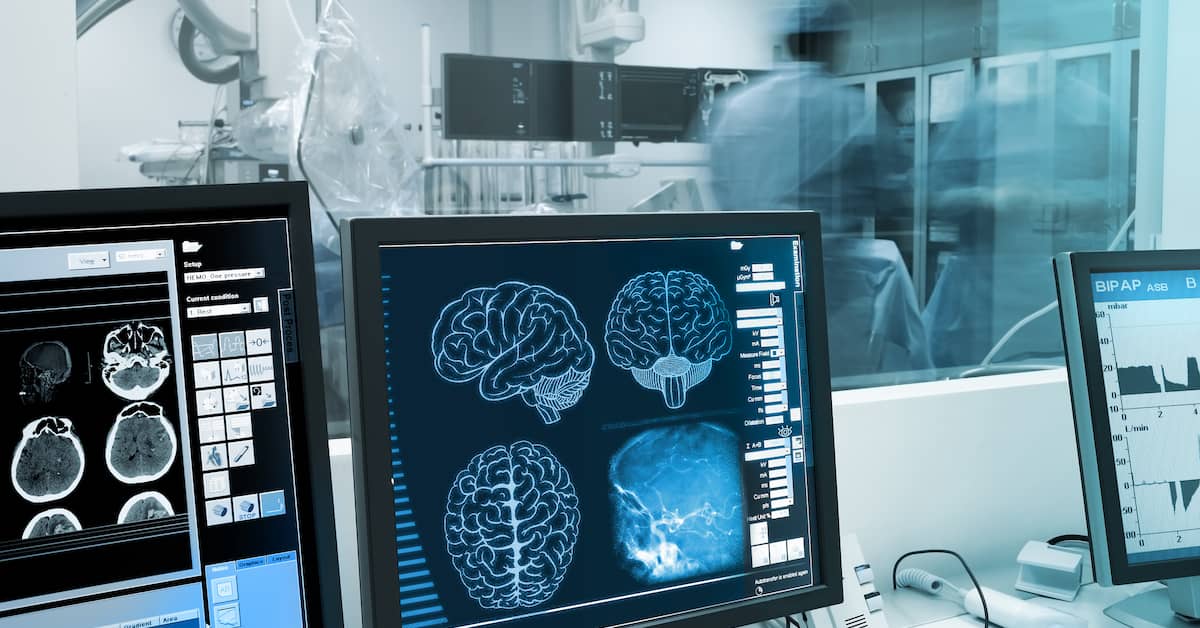
“She is Doing so Well that It’s amazing”
One of the first case studies to show the potential benefits of low-dose radiation for brain health was reported back in 2015. At that time, a woman in her 80s who had been suffering from dementia for a decade was treated with CT scans after her husband had read that radiation could potentially help improve brain problems linked to aging.2 The woman was in a wheelchair and had grown unresponsive, so her doctor agreed the controversial treatment was worth a shot. Two days after a pair of CT scans, the woman’s caregiver, who didn’t even know about the radiation treatments, reported that, “She is doing so well that it is amazing. I have never seen someone improve this much. She wanted to get up and walk. She was talking some, with more sense, and she was feeding herself again.”3 The scans made such a big difference that her husband, who suffered from Parkinson’s, had CT scans performed on himself and reported that it helped improve his Parkinson’s-linked movement issues. There’s one other significant result linked to the case study: The doctor involved in the case, Jerry M. Cuttler, has been involved in a crusade ever since to convince mainstream medical researchers that low-dose radiation is a medical treatment with tremendous potential for treating a wide variety of illnesses and, in particular, may prove widely useful as a therapy for Alzheimer’s disease.4The Key is “Low-Dose”
Dr. Cuttler has performed extensive reviews of research that show low-dose radiation conveys important health benefits. He points out that in the past 50 years, lab tests and tests on humans have shown that low-dose radiation stimulates the body’s illness prevention systems –triggering cells to beef up their antioxidant defenses, rev up their enzymatic repair, mobilize and modulate the immune response to pathogens and accelerate DNA repair. Of course, Dr. Cuttler also recognizes that high-dose radiation produces the opposite results – harming the body and hampering cellular protections. However, he urges more research into radiation’s effects to determine where the proper cutoff is between low-dose radiation benefits and high-dose radiation harm. Though his position on radiation is still not held widely, other studies suggest low-dose radiation can support overall brain health. For example:- Low-dose radiation may improve the synapses of neurons in the brain. Lab tests in Asia show that this type of treatment can improve the health of neurons in the hippocampus and cortex. The researchers say that “more studies are needed to illuminate the molecular mechanisms underlying the effects of LDIR (low-dose ionizing radiation).”5
- Low-dose radiation may stimulate the release of anti-inflammatory molecules in brain tissue. In a review of research into the effects of low-dose radiation, Swiss researchers, who are about to embark on a phase I clinical trial, report that radiation may decrease immune cell inflammation.6
- https://pubmed.ncbi.nlm.nih.gov/33646146/
- https://www.ncbi.nlm.nih.gov/pmc/articles/PMC4826954/
- https://www.ncbi.nlm.nih.gov/pmc/articles/PMC4826954/
- https://www.youtube.com/watch?v=paU5OuK37U4
- https://www.ncbi.nlm.nih.gov/pmc/articles/PMC7279400/
- https://pubmed.ncbi.nlm.nih.gov/32039848/
- https://www.ncbi.nlm.nih.gov/pmc/articles/PMC7794644/
